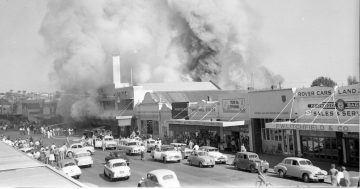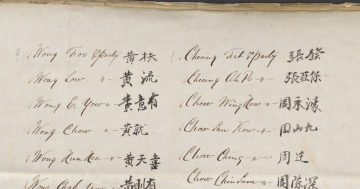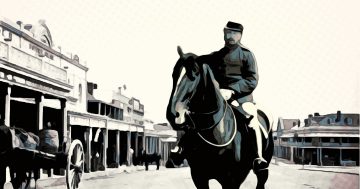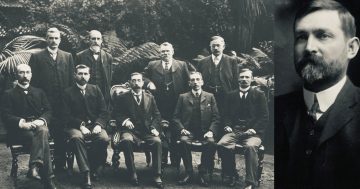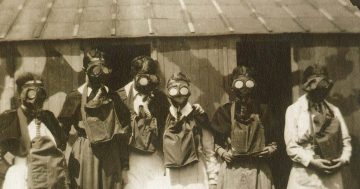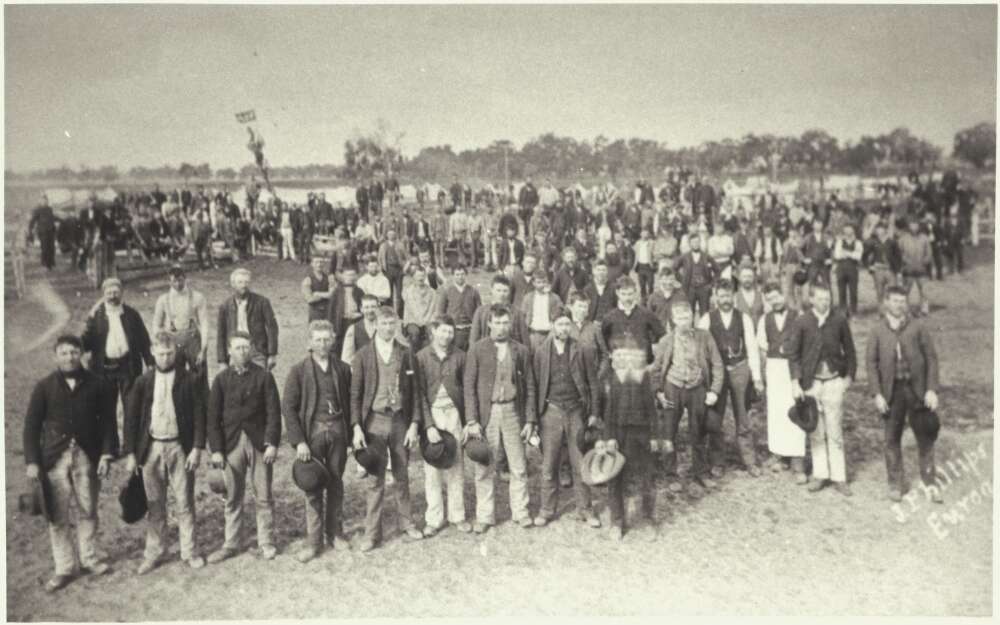
Men inside the Shearers’ Union camp at Brookong in August 1888. Photo: James Phillips/National Library of Australia.
On Sunday 19 August 1888, the town of Wagga Wagga was on edge awaiting news from Brookong Station near Lockhart where a tense standoff between union shearers and station owners threatened to boil over.
The previous morning police magistrate Henry Baylis had ridden the 52 miles to Brookong to join a handful of local police and read the riot act to the camp of several hundred unionists.
More police were on the way from Goulburn, Sydney and Albury along with sword wielding cavalry and more armed volunteers from Wagga were standing by to give assistance if required.
The “disturbance” at Brookong Station underscored the escalating tensions between pastoralists and the growing trade union movement which had begun to flex its muscles in the shearing sheds of the Riverina.
Station owner William Halliday had declined to accept a revised contract from the Amalgamated Shearers’ Union of Australasia (ASU) and decided instead to employ non-union labour to shear the quarter of a million sheep that would pass through his massive woolshed that spring.
The unionists downed tools and established a large camp on Crown land near the station and intercepted anyone coming or going. While most men acted peacefully and with good intentions, there were some “high spirited lads” among them and frustration simmered.
Non-union men were held within the camp and at times were violently prevented from leaving. In one incident, a group of Tasmanian shearers tried to reach the station but were pelted with stones, knocked to the ground and kicked and forced to join the other “hostages”.
On Sunday afternoon the telegraph in Wagga chattered to life, tapping out a message from Baylis.
“Things still unsettled. Union men have increased in numbers. They are waylaying all shearers and taking them to the union camp,” Sydney’s Evening News reported.
“Information was received last night that the station would be rushed, probably in the night-time.”
An arrangement had been made for a group of 28 non-union shearers to begin work under police protection, however the men had declined to enter the woolshed in view of the union pickets.
With just 15 policemen at his disposal, Baylis feared they would not be able to guard the shearers quarters if the unionists attempted an attack on the “scabs”.
“The police have had no sleep, and were under arms from 8 o’clock last night till daylight this morning,” Baylis continued.
“If the place is rushed the police officer in charge considers there will be no alternative but to fire to take life. This course will be unavoidable, as the union men muster between 200 and 300 strong and are armed.”
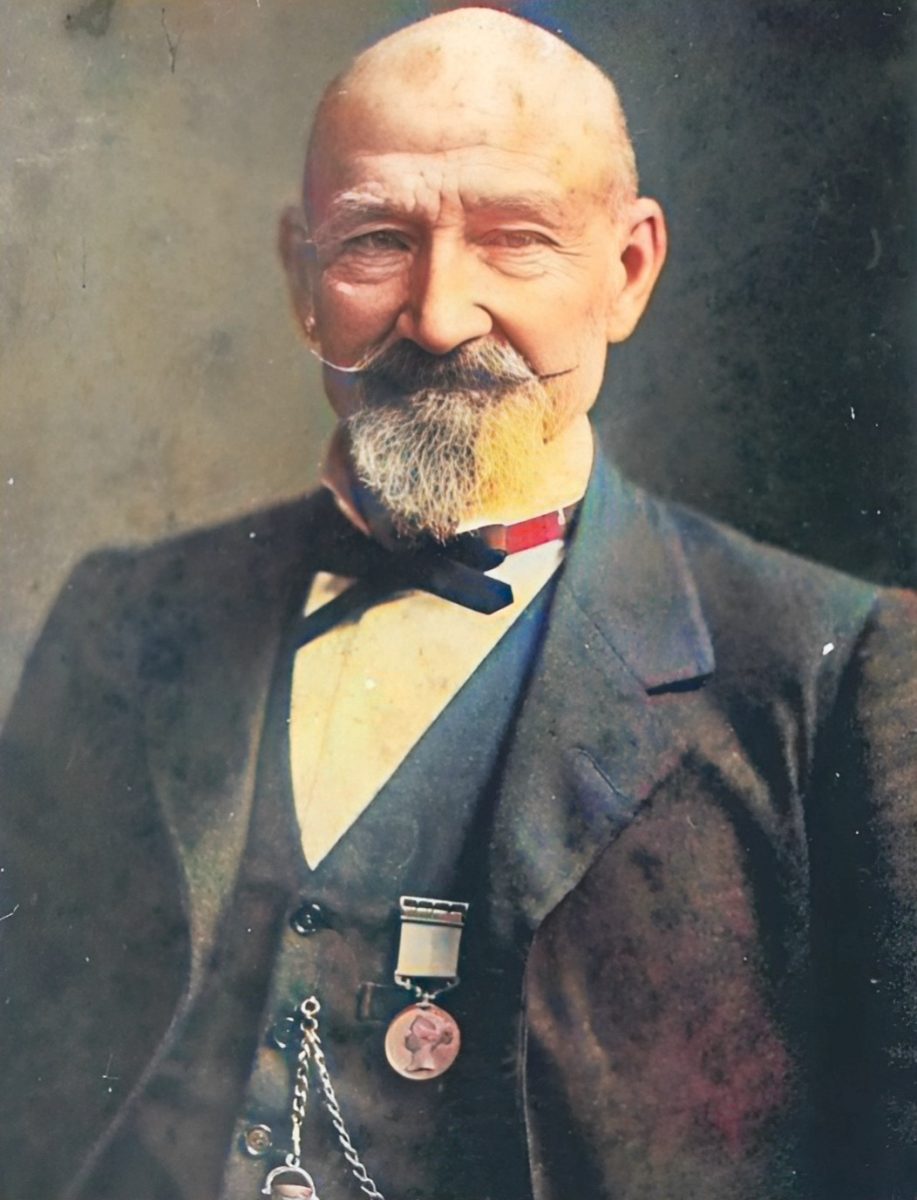
Wagga police magistrate Henry Baylis some years after the events at Brookong. Photo: Museum of the Riverina.
While union members later confirmed that an attack had been contemplated, the night passed without incident and things began to deescalate over the next few days.
Twelve police reinforcements arrived on the Tuesday and a correspondent from the Albury Banner and Wodonga Express described the situation as “quiet”.
“The men still refuse to work under the station agreement, and are camped, waiting until the owner comes to terms,” they said, adding that the men would soon need to seek work on other stations.
“There are some 300 men in camp but most have secured places in sheds starting about 1 September under union rules and that number will very soon be considerably lessened.”
Sure enough, on the Wednesday, the shearers broke camp and headed towards Urana with a police escort to ensure they did not double back.
While Baylis had been prepared to read the riot act and force the shearers out if required, it seems that he judiciously decided against escalating matters and instead, the ringleaders were arrested at Urana on warrant for causing a disturbance of the peace.
Nine men, including two union delegates, were subsequently charged with having “assembled together in the promotion of an unlawful private enterprise and committed a riot”.
They were tried on 19 October at a sitting of the Supreme Court in Wagga where they were found guilty. In delivering sentences between one and three years’ hard labour, the judge proclaimed that an example must be made.
“If organisations of this kind were permitted, if lawless bodies of men, organising themselves with the discipline of a military force, were permitted to go about the country interfering with honest working men, there would be no safety for any man in the community,” he said.
While the pastoralists saw the outcome as a victory of capital over labour, the unionists took stock and reevaluated their approach. The Brookong disturbance and the harsh punitive response highlighted the need for better coordination and political representation to change the laws that were being used against workers.
A wave of industrial disputes would follow and in 1891 the newly formed Labor Electoral League of NSW won 35 of 141 seats in the NSW colonial election.







